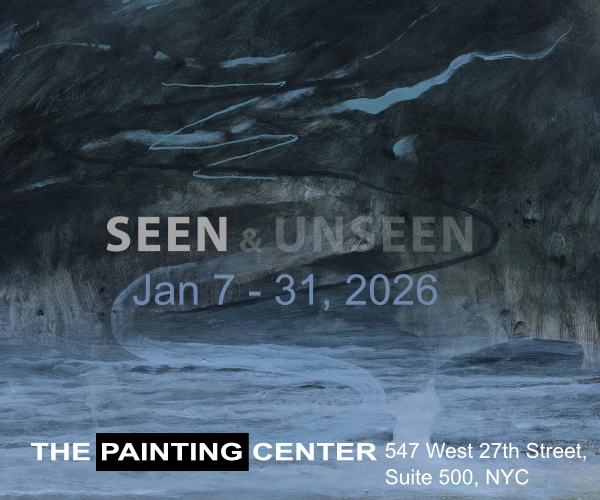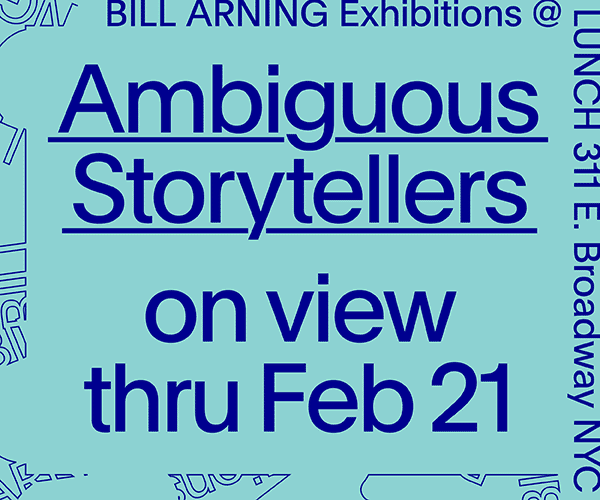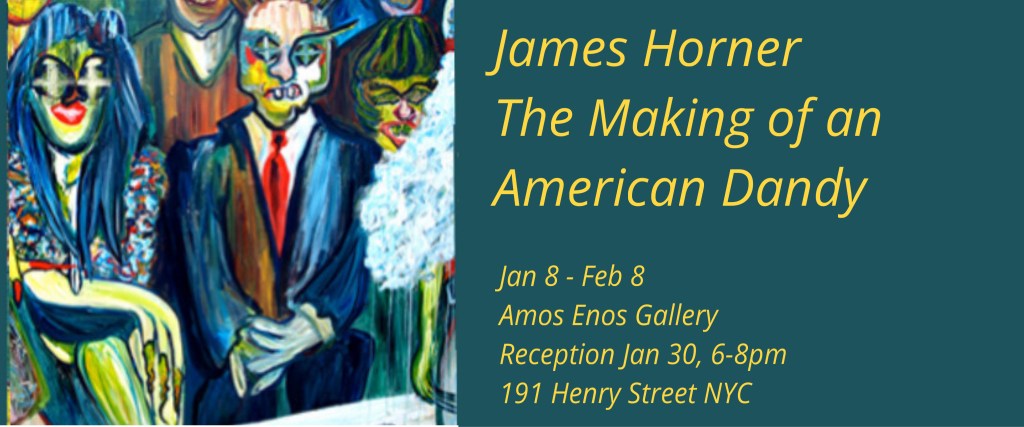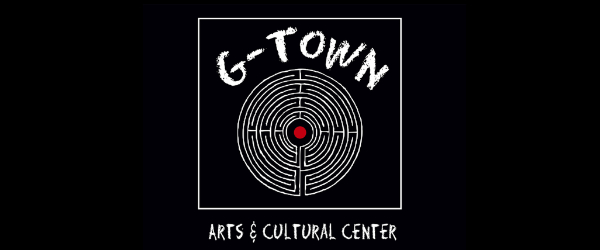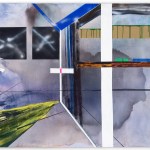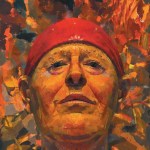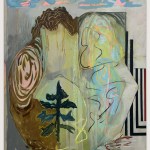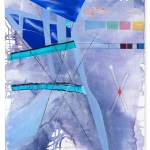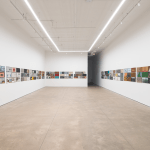Recalling Warhol�s 13 Most Wanted Men project, which debuted controversially at the 1964 World�s Fair, Suzanne McClelland in �Call With Information,� her latest show at Team Gallery, continues her series about a kindred subject: Americans citizens wanted by the government for domestic terrorism. For the past several years McClelland has been compiling information�about seven US citizens, each wanted for domestic terrorist activities; some have been on the lam for more than fifty years. Silkscreened images of wanted�posters, cut and embedded in paper pulp made during a�residency at Dieu Donn�, and copies of news reports (filed into dossiers for each missing person) form the basis for the work in this compelling exhibition that, unlike much recent abstraction, weds gestural painting with political content.

McClelland began the series (each painting is labeled with the numbers assigned to the corresponding case by the FBI�s National Crime Information Center)�in 2014; four are included in the exhibition and three more are in the�works. An installation of wallpaper printed with a timeline created and�maintained by the Southern Poverty Law Center document the domestic terrorist acts recorded since the Oklahoma bombing in April 1995–a parallel history to the timeline maintained by the FBI.

McClelland isn�t trying to assess whether the wanted are innocent or guilty, and she seeks neither to demonize nor to lionize them. Rather, she is illuminating the discomfiting reality that we may never know what really happened in their respective cases. In each instance, passionate belief led someone to take action that may have had untoward consequences, but given the sketchy existing information about each event and the ever-shrinking probability that much more can be substantiated due to the erosion of evidence and the mortality of witnesses, closure is practically impossible. The victims� survivors � and, more broadly, society � must endure the ambiguity. �We live with the constant search … the notion that data is the most important material we have,� McClelland told me as we walked through the exhibition last week. �Much like the lives we lead now on the internet � everything is text-based–the primary connection to our activity is maintained through data.�
From the snippets of truncated text and obscured imagery to the shades�of gray and washy brushwork, the work in McClelland�s exhibition aptly�conveys in her own visual language the uncertainty of the fugitives��stories. The matter-of-fact authoritativeness of the typeset text and�photographic imagery that appears in the timeline poster gives way in�the large-scale paintings to less grounded and more intuitive gesture,�drawing, and writing. The resulting layered surfaces and shifting,�mysterious spaces reflect both McClelland�s searching and the inevitable�erasure of information that happens over time. Thus, as she examines�the news reports, texts, and images that constitute her research�materials, McClelland seems to understand less and less, and�to become more anguished by the fact that she will never know what�happened.
In this absorbing exhibition, McClelland has tackled–incisively and expansively,�parochially and universally–the elusiveness of justice and explanation�in an age of political polarization, when violence is all too easily�rationalized by fervent ideology.
“Suzanne McClelland: Call With Information,” Team, Soho, New York, NY. Through March 22, 2015.
Related posts:
Politics and abstract painting: Matthew Deleget at OUTLET
2014 Whitney Biennial: Curators’ statements, painting links
DISCUSSION: Owning motherhood
——
Two Coats of Paint is licensed under a Creative Commons Attribution – Noncommercial-No Derivative Works 3.0 United States License. For permission to use content beyond the scope of this license, permission is required.



